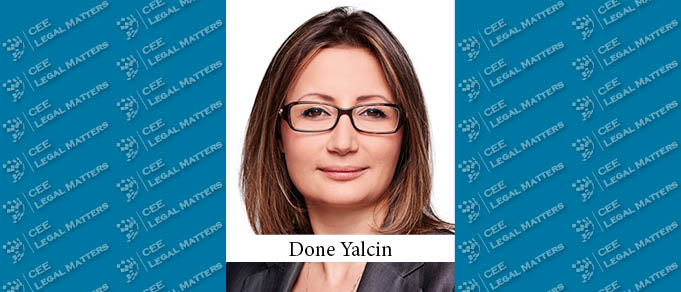From the resolution of election uncertainties and the surge in M&A transactions to the focus on ESG matters and the country’s alignment with EU regulations, Turkey is positioning itself as an attractive destination for foreign investors, while also increasing the volume of outbound investments, according to Yalcin Babalioglu Kemahli in cooperation with CMS Managing Partner Done Yalcin.
“After the resolution of election uncertainties, we are witnessing a significant upturn in the market,” Yalcin begins. “M&A deals and transactions are on the rise, and there is a strong emphasis on addressing ESG concerns. Additionally, the regulatory wave originating from the EU is of paramount importance to Turkey, given its status as the country's largest trade partner.”
ESG has become a central topic in the legal landscape of Turkey, Yalcin says. “Many banks are stepping in to provide funding and financing to projects aligned with green economy initiatives. For instance, we have recently seen a notable example of a USD 600 million loan being granted to support green projects. Moreover, Turkey's participation in programs like the EBRD's Green City Program highlights the nation's commitment to sustainability,” she notes.
Just looking at the Energy Ministry as an example, Yalcin says “they have a lot of initiatives for strengthening renewable energy, both wind and solar. There are numerous papers released and events organized with the energy working group on the country’s Green Transformation Project – a very important strategy paper on developing green energy in Turkey more and more.”
As Turkey is heavily affected by EU policy moves despite not being an EU member, Yalcin explains there is a concerted effort – from both businesses and the government – to align with these regulations. “We closely follow discussions surrounding the CBAM regulation, which entails the purchase of emission certificates to ensure ESG compliance for products. Turkey, as part of integrated supply chains and conducting business with the EU, will also be impacted by the forthcoming supply management directive.”
When it comes to M&A transactions, Yalcin points out that European and foreign companies are reconsidering their supply chains, making Turkey an attractive investment destination. “Some clients are investing in Turkish suppliers, either by undertaking investments in them or acquiring them outright, in order to enhance their supply chains,” she notes. “Additionally, we are witnessing a rise in restructurings, both financial and business-related, due to the currency crisis and risk structuring concerns.”
But the reverse is true as well, Yalcin highlights: “Turkish companies are increasingly diversifying their portfolios by investing outside of Turkey,” a strategy that helps them perform better during times of crisis. “We have worked with several clients on their investments abroad, providing coordination and assistance across jurisdictions. It's encouraging to see these opportunities arise, especially when companies have established partnerships with foreign entities. For example, we have one client currently making investments in 33 countries at the same time.”
Finally, Yalcin says the whole country is actively engaged in supporting start-ups and entrepreneurial ventures. “Country-wide goals, coupled with the efforts of private organizations, are fostering an environment conducive to their growth. Creating the necessary knowledge and context for start-up development is a significant focus for us, fostering innovation and entrepreneurship,” she concludes.


